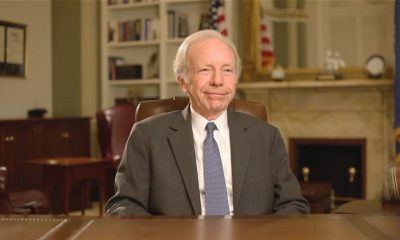National
Young, gay caucus-goers talk politics, support for GOP
Romney, Paul find support from some gay Iowans


Several young gay Iowa caucus goers discuss which GOP candidates they will support today. (Washington Blade photo by Chris Johnson)
DES MOINES, Iowa — For some gay Iowa Republicans, the 2012 presidential election is about more than just LGBT issues.
Economic issues and a belief in limited government are trumping concerns that the GOP presidential contenders are hostile to LGBT rights.
The Washington Blade interviewed five young gay Des Moines residents who will be among the estimated 120,000 Iowa Republican caucus-goers about why they support the GOP this year.
C.J. Petersen, 21, a customer service representative for Nationwide Insurance, is backing former Massachusetts Gov. Mitt Romney because of the candidate’s business background.
Petersen said he became interested in Romney as a high school senior in 2007 when he saw him speak during his last presidential run.
“I think, this year, he’s been a 100 percent better candidate,” Petersen said. “If you compare the YouTube videos from ’08 to now, he seems a lot less robotic and choppy and nervous. I think he seems a lot more relaxed, and almost presidential, ready to be a leader.”
Two other gay Iowa residents interviewed by the Blade said they’re backing Rep. Ron Paul (R-Texas) because of the candidate’s libertarian views.
Dereck Plagmann, 21, said he’s in the Paul camp because of the candidate’s adherence to the U.S. Constitution.
“I think it’s something that we’ve definitely drifted away from,” Plagmann said. “We need to get back to it basically. Other presidents, everybody’s trying to make changes to it. They’ve lost focus on what really made this country, and what made us who we are.”
Zach Coffin, 22, a collector for Wells Fargo bank, also plans to back Paul.
“I think that’s basically what this country needs right now is someone that will defend the core values and the core principles of the Constitution of the United States,” Coffin said. “That’s one thing that Ron Paul is focusing on well.”
MORE IN THE BLADE: ROMNEY, SANTORUM SHOW NEW STRENGTH IN IOWA POLLS
Two other gay caucus participants interviewed by the Blade had yet to make a decision on a candidate, but intend to support a Republican.
Bryan Pulda, 21, a processor for Wells Fargo Bank, said he still needs to research each of the GOP candidates.
“I come from a farming family, so it’s conservative or Catholic,” Pulda said. “Our personal views are more reflected in the Republican candidates.”
Although he hasn’t made a final choice, Pulda said he’s leaning toward backing Paul because he believes the candidate’s politics “are consistent” and he “hasn’t been in the news with anything controversial.”
Ryan Schrader, 22, who works at a local Casey’s gas station, was also undecided but said he’s leaning toward Paul.
“I come from a very conservative background myself,” Schrader said. “My family is very conservative Baptists. So his views are more towards letting the people, which would be all of us, make the decisions to shape our country.”
The candidates chosen by the five caucus-goers — Romney and Paul — have adopted some anti-gay positions, though they have not been as extreme in their views as other Republican contenders.
Paul supported the repeal of “Don’t Ask, Don’t Tell” and twice voted against a U.S. constitutional amendment banning same-sex marriage.
Romney backs such an amendment, but expressed doubts that there is enough momentum or interest to pass it. He’s also said he would leave open service in the military as it is.
MORE IN THE BLADE: ANTICIPATING THE WHIRLWIND YEAR AHEAD
Still, neither candidate has the track record or commitment that President Obama has demonstrated in advancing LGBT rights. But the gay Iowa caucus-goers say they’re backing a Republican candidate to address more mainstream issues affecting the country.
Coffin said social issues can motivate people because they’re easy to understand, but if voters take the time to learn about economic issues, they “usually wind up changing their mind and thinking about the big picture what’s really going on here.”
“I don’t know if it’s because I’ve always lived in Iowa, and Iowa is one of the states where you can be married,” Coffin said. “With the amount of rights that gay people have right now, I feel totally comfortable with what we have.”
While Iowa has achieved marriage equality, if a Republican administration succeeds in passing a Federal Marriage Amendment as many of the candidates have promised, the measure would abrogate the 2009 court ruling allowing gay couples to marry in the state.
Pulda similarly said issues like same-sex marriage are on the back burner in comparison to improving economic conditions in the country.
“I would find it almost selfish for me to go out and say, ‘I vote for this person simply because they want same-sex marriage,'” Pulda said. “There are so many more problems in this country affecting more people than just me.”
But there’s a limit to how much these caucus-goers are willing to look the other way. Candidates like former U.S. Sen. Rick Santorum, Texas Gov. Rick Perry or Rep. Michele Bachmann, who make anti-gay rhetoric a foundation of their campaigns, are turn-offs as potential candidates.
Petersen said he wouldn’t support a candidate who would make social issues a “central tenet of their campaign.
“I’m a Republican, but I’m not stupid,” Petersen said. “If they want to use those issues as a wedge to get voters to support them, I’m not really attracted to that.”
A recent anti-gay ad by Rick Perry that has been widely circulated on the Internet was a bridge too far for these caucus-goers. In the ad, Perry accuses Obama of engaging in a war on religion and says, “There’s something wrong in this country when gays can serve openly in the military, but our kids can’t openly celebrate Christmas or pray in school.”
Pulda said the ad made him think twice about Perry, but still isn’t ruling him out as a potential candidate to back during the caucuses.
“I liked Rick Perry, but the latest ad he put out — I think he used the wrong language,” Pulda said. “That wasn’t the ad to go out.”
Petersen took a dig at Obama, saying he’s been paying lip service to the LGBT community and that one of his major accomplishments — repeal of “Don’t Ask, Don’t Tell” — “just kind of came to him.”
“It was basically Senators [Susan Collins] and Joe Lieberman who said they were getting this done at the end of the year,” Petersen said. “What ended up happening is a great victory for us in the sense that LGBT Americans can now serve their country in uniform. That’s a great thing, but I don’t really credit that to President Obama.”
The administration was seen by some as playing a passive role in the legislative effort to repeal “Don’t Ask, Don’t Tell” before the Pentagon issued its report on implementing repeal. But after the Pentagon report came out, observers said the White House was active in engaging with senators to push through the legislation.
R. Clarke Cooper, executive director of Log Cabin Republicans, said support for the Republican Party among young voters will grow if the GOP steers clear of social issues.
“Younger conservative voters under 30 continue to increasingly poll disinterest over social issues and do not support perceived or real demonization of LGBT Americans,” Cooper said. “If social issues, however, remain a myopic priority for certain candidates, they will find as former [Republican National Committee] Chairman Haley Barbour stated in 2011, ‘Purity is the enemy of victory.'”
Peter Levine, director of Tufts University’s Center for Information and Research on Civic Learning and Engagement, said involvement of young gays in the Iowa caucuses is reflective of the political energy among youth throughout the country.
“I think it’s sort of characteristic of this generation,” Levine said. “Even though the turnout in the end may not be that high, for various reasons, I think there is a lot of energy and enthusiasm.”
It’s not the first time that Petersen and Plagmann have participated in the Iowa caucuses. Petersen backed Romney in 2008, while Plagmann participated in the Democratic caucus and backed Obama’s candidacy.
Plagmann said he might vote for Obama during the general election if the Republican nominee isn’t to his liking, although he’s changing his party affiliation during the Iowa caucuses because he’s disappointed in the administration.
“Back then it was my first election,” Plagmann said. “I was 18. I didn’t really look a whole lot into it. I guess I could relate to him more. But surely now, I don’t think he’s been as effective as what America had hoped.”
Whatever the election results, at least one of the caucus-goers says he’ll keep gay rights in mind as he continues advocating for a Republican agenda.
“I personally would like to see same-sex marriage legalized in all the states, but I don’t think we have to leave the Republican Party in order to stand for most of our principles,” Petersen said. “I’m not going to base my entire vote on one part of my life. I have a financial future as well as a romantic future.”
Federal Government
Lambda Legal praises Biden-Harris administration’s finalized Title IX regulations
New rules to take effect Aug. 1

The Biden-Harris administration’s revised Title IX policy “protects LGBTQ+ students from discrimination and other abuse,” Lambda Legal said in a statement praising the U.S. Department of Education’s issuance of the final rule on Friday.
Slated to take effect on Aug. 1, the new regulations constitute an expansion of the 1972 Title IX civil rights law, which prohibits sex-based discrimination in education programs that receive federal funding.
Pursuant to the U.S. Supreme Court’s ruling in the landmark 2020 Bostock v. Clayton County case, the department’s revised policy clarifies that discrimination on the basis of sexual orientation and gender identity constitutes sex-based discrimination as defined under the law.
“These regulations make it crystal clear that everyone can access schools that are safe, welcoming and that respect their rights,” Education Secretary Miguel Cardona said during a call with reporters on Thursday.
While the new rule does not provide guidance on whether schools must allow transgender students to play on sports teams corresponding with their gender identity to comply with Title IX, the question is addressed in a separate rule proposed by the agency in April.
The administration’s new policy also reverses some Trump-era Title IX rules governing how schools must respond to reports of sexual harassment and sexual assault, which were widely seen as imbalanced in favor of the accused.
Jennifer Klein, the director of the White House Gender Policy Council, said during Thursday’s call that the department sought to strike a balance with respect to these issues, “reaffirming our longstanding commitment to fundamental fairness.”
“We applaud the Biden administration’s action to rescind the legally unsound, cruel, and dangerous sexual harassment and assault rule of the previous administration,” Lambda Legal Nonbinary and Transgender Rights Project Director Sasha Buchert said in the group’s statement on Friday.
“Today’s rule instead appropriately underscores that Title IX’s civil rights protections clearly cover LGBTQ+ students, as well as survivors and pregnant and parenting students across race and gender identity,” she said. “Schools must be places where students can learn and thrive free of harassment, discrimination, and other abuse.”
Michigan
Mich. Democrats spar over LGBTQ-inclusive hate crimes law
Lawmakers disagree on just what kind of statute to pass

Michigan could soon become the latest state to pass an LGBTQ-inclusive hate crime law, but the state’s Democratic lawmakers disagree on just what kind of law they should pass.
Currently, Michigan’s Ethnic Intimidation Act only offers limited protections to victims of crime motivated by their “race, color, religion, gender, or national origin.” Bills proposed by Democratic lawmakers expand the list to include “actual or perceived race, color, religion, gender, sexual orientation, gender identity or expression, ethnicity, physical or mental disability, age, national origin, or association or affiliation with any such individuals.”
Democratic Gov. Gretchen Whitmer and Attorney General Dana Nessel have both advocated for a hate crime law, but house and senate Democrats have each passed different hate crimes packages, and Nessel has blasted both as being too weak.
Under the house proposal that passed last year (House Bill 4474), a first offense would be punishable with a $2,000 fine, up to two years in prison, or both. Penalties double for a second offense, and if a gun or other dangerous weapons is involved, the maximum penalty is six years in prison and a fine of $7,500.
But that proposal stalled when it reached the senate, after far-right news outlets and Fox News reported misinformation that the bill only protected LGBTQ people and would make misgendering a trans person a crime. State Rep. Noah Arbit, the bill’s sponsor, was also made the subject of a recall effort, which ultimately failed.
Arbit submitted a new version of the bill (House Bill 5288) that added sections clarifying that misgendering a person, “intentionally or unintentionally” is not a hate crime, although the latest version (House Bill 5400) of the bill omits this language.
That bill has since stalled in a house committee, in part because the Democrats lost their house majority last November, when two Democratic representatives resigned after being elected mayors. The Democrats regained their house majority last night by winning two special elections.
Meanwhile, the senate passed a different package of hate crime bills sponsored by state Sen. Sylvia Santana (Senate Bill 600) in March that includes much lighter sentences, as well as a clause ensuring that misgendering a person is not a hate crime.
Under the senate bill, if the first offense is only a threat, it would be a misdemeanor punishable by one year in prison and up to $1,000 fine. A subsequent offense or first violent hate crime, including stalking, would be a felony that attracts double the punishment.
Multiple calls and emails from the Washington Blade to both Arbit and Santana requesting comment on the bills for this story went unanswered.
The attorney general’s office sent a statement to the Blade supporting stronger hate crime legislation.
“As a career prosecutor, [Nessel] has seen firsthand how the state’s weak Ethnic Intimidation Act (not updated since the late 1980’s) does not allow for meaningful law enforcement and court intervention before threats become violent and deadly, nor does it consider significant bases for bias. It is our hope that the legislature will pass robust, much-needed updates to this statute,” the statement says.
But Nessel, who has herself been the victim of racially motivated threats, has also blasted all of the bills presented by Democrats as not going far enough.
“Two years is nothing … Why not just give them a parking ticket?” Nessel told Bridge Michigan.
Nessel blames a bizarre alliance far-right and far-left forces that have doomed tougher laws.
“You have this confluence of forces on the far right … this insistence that the First Amendment protects this language, or that the Second Amendment protects the ability to possess firearms under almost any and all circumstances,” Nessel said. “But then you also have the far left that argues basically no one should go to jail or prison for any offense ever.”
The legislature did manage to pass an “institutional desecration” law last year that penalizes hate-motivated vandalism to churches, schools, museums, and community centers, and is LGBTQ-inclusive.
According to data from the U.S. Department of Justice, reported hate crime incidents have been skyrocketing, with attacks motivated by sexual orientation surging by 70 percent from 2020 to 2022, the last year for which data is available.
Twenty-two states, D.C., Puerto Rico, and the U.S. Virgin Islands have passed LGBTQ-inclusive hate crime laws. Another 11 states have hate crime laws that include protections for “sexual orientation” but not “gender identity.”
Michigan Democrats have advanced several key LGBTQ rights priorities since they took unified control of the legislature in 2023. A long-stalled comprehensive anti-discrimination law was passed last year, as did a conversion therapy ban. Last month the legislature updated family law to make surrogacy easier for all couples, including same-sex couples.
A bill to ban the “gay panic” defense has passed the state house and was due for a Senate committee hearing on Wednesday.
Indiana
Drag queen announces run for mayor of Ind. city
Branden Blaettne seeking Fort Wayne’s top office

In a Facebook post Tuesday, a local drag personality announced he was running for the office of mayor once held by the late Fort Wayne Mayor Tom Henry, who died last month just a few months into his fifth term.
Henry was recently diagnosed with late-stage stomach cancer and experienced an emergency that landed him in hospice care. He died shortly after.
WPTA, a local television station, reported that Fort Wayne resident Branden Blaettne, whose drag name is Della Licious, confirmed he filed paperwork to be one of the candidates seeking to finish out the fifth term of the late mayor.
Blaettner, who is a community organizer, told WPTA he doesn’t want to “get Fort Wayne back on track,” but rather keep the momentum started by Henry going while giving a platform to the disenfranchised groups in the community. Blaettner said he doesn’t think his local fame as a drag queen will hold him back.
“It’s easy to have a platform when you wear platform heels,” Blaettner told WPTA. “The status quo has left a lot of people out in the cold — both figuratively and literally,” Blaettner added.

The Indiana Capital Chronicle reported that state Rep. Phil GiaQuinta, who has led the Indiana House Democratic caucus since 2018, has added his name to a growing list of Fort Wayne politicos who want to be the city’s next mayor. A caucus of precinct committee persons will choose the new mayor.
According to the Fort Wayne Journal Gazette, the deadline for residents to file candidacy was 10:30 a.m. on Wednesday. A town hall with the candidates is scheduled for 6 p.m. on Thursday at Franklin School Park. The caucus is set for 10:30 a.m. on April 20 at the Lincoln Financial Event Center at Parkview Field.
At least six candidates so far have announced they will run in the caucus. They include Branden Blaettne, GiaQuinta, City Councilwoman Michelle Chambers, City Councilwoman Sharon Tucker, former city- and county-council candidate Palermo Galindo, and 2023 Democratic primary mayoral candidate Jorge Fernandez.
-

 Africa5 days ago
Africa5 days agoCongolese lawmaker introduces anti-homosexuality bill
-

 District of Columbia2 days ago
District of Columbia2 days agoReenactment of first gay rights picket at White House draws interest of tourists
-

 District of Columbia1 day ago
District of Columbia1 day agoNew D.C. LGBTQ+ bar Crush set to open April 19
-

 Arizona2 days ago
Arizona2 days agoAriz. governor vetoes anti-transgender, Ten Commandments bill












